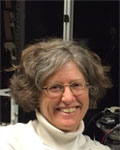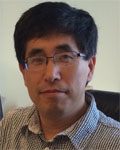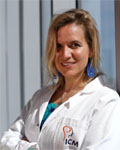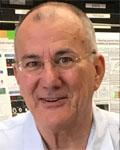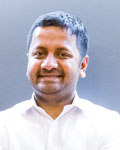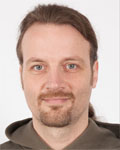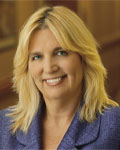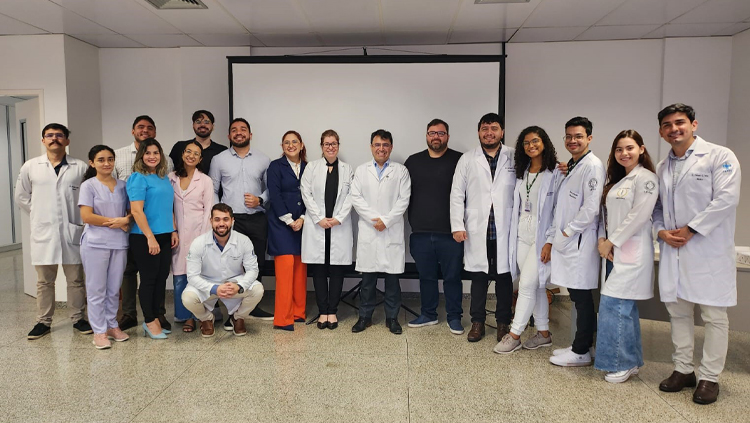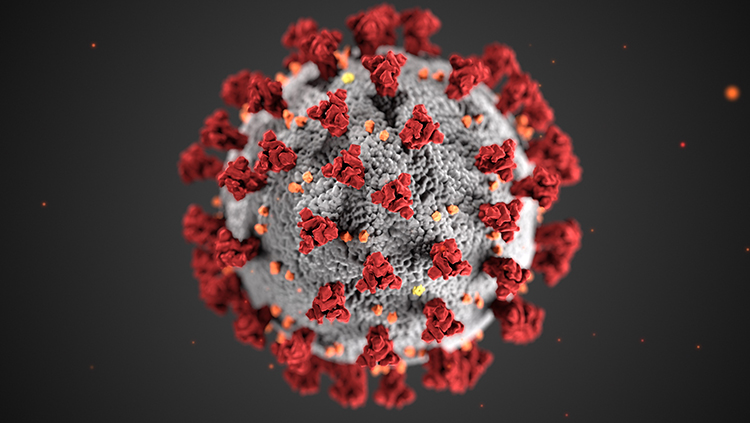This event took place on September 9, 2020 and is no longer available on-demand. Read session recaps and continue the discussion in the Neuronline Community.
The formation of neuronal circuits during development and their regeneration after injury share certain similarities, but with distinct features. By understanding these processes in neural development, we may discover new therapeutic strategies to treat neuronal injuries.
During this virtual conference—organized by Marla Feller and Zhigang He—leaders in the fields of development and regeneration will discuss the current status of key studies at the cellular, molecular, and circuit level, including:
- Examples illustrating how functional circuits are built and mature during development.
- Studies highlighting regeneration in both PNS and CNS.
- Emerging frontiers in theoretical and technical studies of injury and regeneration.
- Research on rebuilding functional circuits for functional restoration and their potential translational applications.
After this virtual conference, participants are expected to have gained a broader perspective on neural development and functional restoration research.
Lightning Talks
Watch short videos from neuroscientists in the field as they describe important data and methods they use in their lab. The videos are available on Neuronline, so you can watch them before, during, or after the virtual conference. Lightning Talks are provided by Ariel Levine and Kaya Matson, Kai Liu, Melanie Samuel, and Alexandre Tiriac.
Registration:
For members, including Institutional Program members:
Not an SfN member?
- Register for the virtual conference for $200, or
Receipt information is included in your registration confirmation email.
Contact us if you have questions. Email digitallearning@sfn.org
Development & Regeneration: Common Themes and Important Differences is intended to be applicable to individuals at all career stages. After this virtual conference, participants are expected to have gained a broader perspective on neural development and functional restoration research.
- Hear from leaders in the field discussing current research on development and regeneration across the cellular, molecular, and circuit level.
- Watch Lightning Talks, short videos accessible to attendees, featuring neuroscientists presenting on their research in the development and regeneration fields. The videos are available on Neuronline so you can watch them before, during, or after the conference. Lightning Talks will be provided by Ariel Levine and Kaya Matson, Kai Liu, Melanie Samuel, and Alexandre Tiriac.
- Ask questions and get answers from experts — each session will be accompanied by a live audio Q&A opportunity.
- Network with other attendees from around the world on Twitter using #SfNvirtual and mentioning @SfNtweets in all your posts.
- Avoid travel costs and learn about new research findings that show how we can use insight from neural development studies to inform research on therapeutic strategies to treat neuronal injuries.
- Enjoy six months of on-demand access. Can’t make it for the live day or want to watch the talks again? All sessions will be available on demand one hour after they have aired.
- Resources: Download additional information and resources chosen by speakers. Read session recaps and discuss the virtual conference in the Neuronline Community.
Click on each session title to reveal its description or download a one page version of the agenda here.
Session 1: Development
Speakers: Claire Wyart and Marla Feller
Time: 11 a.m. – noon EDT
The process of neurodevelopment has traditionally been divided into two phases: an early phase during which predetermined genetic programs guide the many steps resulting in the coarse wiring of the nervous system, and a later phase during which sensory-driven neural signaling refines these connections into adult circuits. However, there is now a large body of evidence that neural signaling and genetic programs interact to guide the maturation of neural circuits at all stages of development.
Here we will introduce two model systems — the retina and spinal cord — to describe recent progress from our labs regarding the role of early neural signaling in development, with a focus on the involvement of sensory systems and interactions with glial cells.
Session 2: Axon Regeneration
Speakers: Michael Sofroniew and Valeria Cavalli
Time: 12:15 – 1:15 EDT
The process of axon regeneration is guided by both the intrinsic capacity of injured neurons to activate regenerative responses after injury and by the extracellular environment in which injured axons must regrow. In the peripheral nervous system (PNS), neurons are able to activate regenerative programs, and the environment is permissive to growth and target re-innervation. By contrast, in the central nervous system (CNS), adult neurons have a poor intrinsic regenerative capacity and the tissue environment is not conducive to growth. There is now substantial evidence about how axon regrowth and plasticity are determined by interactions among neurons, glia, and immune cells.
Here we will discuss two model systems — the spinal cord and peripheral sensory neurons — to describe recent progress from our lab and others regarding the roles of neuron-cell-autonomous mechanisms and the role of glial cells in regenerative growth.
Session 3: New Approaches
Speakers: Karthik Shekhar and Kristian Franze
Time: 1:30 – 2:30 p.m. EDT
Injuries to adult mammalian CNS neurons usually lead to permanent damage. As functional recovery of neurons cannot still be fully promoted, new approaches are needed to illuminate currently unknown processes involved in regulating axon growth and regeneration and identifying potential therapeutic targets.
In this session, we will introduce methods to investigate mechanical signals such as tissue stiffness and transcriptomic states at single cell resolution to investigate currently understudied important aspects of CNS development and regeneration.
Session 4: Functional Recovery
Speakers: Mark Tuszynski and Susan Harkema
Time: 2:45 – 3:45 p.m. EDT
Restoration of function after CNS injury is a complex and ongoing effort that will ultimately need to draw on several repair mechanisms to support detectable functional benefit in humans. This session will describe key challenges to promoting functional recovery, and the status of early efforts to promote human recovery.
Mark Tuszynski will discuss the challenge of identifying the timing of neural repair interventions such as stem cell therapies in humans. Susan Harkema will describe an ongoing effort to promote plasticity of spared systems through focused rehabilitation in humans after spinal cord injury.
Speakers
Marla Feller, PhD, Co-Organizer
Marla Feller is the Paul Licht Distinguished professor of biology in the neuroscience division of the department of molecular and cell biology and a member of the Helen Wills Neuroscience Institute and the University of California, Berkeley. Feller's research focuses on the development and functional organization of neural circuits in the retina. She earned her AB and PhD in physics from the University of California, Berkeley and worked as postdoctoral researcher both at Bell Laboratories and as a Miller Fellows at
UC Berkeley.
Zhigang He, PhD, Co-Organizer
Zhigang He is a professor of neurology and ophthalmology at Boston Children's Hospital, Harvard Medical School. He received his PhD from University of Toronto and was a postdoctoral fellow at University of California, San Francisco. He was named a Klingenstein Fellow in Neuroscience, a John Merck Scholar and a McKnight Scholar and a recipient of Reeve-Irvine Medal. Zhigang’s research has been mainly focused on axon regeneration and function recovery after spinal cord injury and other types of CNS injuries.
Claire Wyart, PhD
Claire Wyart is an independent group leader at the Brain and Spine Institute (ICM) in Paris, France. Wyart did her graduate work in biophysics and neuroscience at the University of Strasbourg, France with Laurent Bourdieu and Didier Chatenay. Her postdoctoral work with Udi Isacoff at the University of California, Berkeley focused on developing new optogenetics techniques. The Wyart lab studies the integration of sensory inputs during spinal cord development using optogenetics, behavior, and physiology. She also coordinates the ZENITH European Training Network, an interdisciplinary doctoral program focused on neural circuits and behavior in zebrafish.
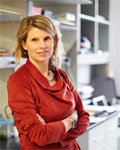
Valeria Cavalli, PhD
Valeria Cavalli is a professor of neuroscience at Washington University School of Medicine. Cavalli earned her doctoral degrees from the University of Geneva, Switzerland. During her graduate Cavalli studied the signaling mechanisms regulating membrane trafficking in cells. She continued with postdoctoral training at the University of California, San Diego, in the lab of Goldstein where she studied how information about injury is conveyed from the distant lesion site in the axon back to the soma. She received a post-doctoral fellowship from the Christopher and Dana Reeve Foundation to continue her studies on injury signaling. Her research focuses on unraveling the molecular and cellular events that dictate the regenerative response of sensory neurons. A critical aim of her studies is to identify potential therapeutic interventions in the setting of central nervous system injury. She recently turned her attention to the possibility that satellite glial cells which form a sheath that surround sensory neurons play an active role in nerve repair.
Michael Sofroniew, MD, PhD
Michael Sofroniew is a distinguished professor of neurobiology at the University of California Los Angeles (UCLA). Work in his laboratory is directed at understanding the cell biology of injury and repair in the adult central nervous system (CNS), with a particular focus on understanding how reactive astrocytes contribute to regulation of CNS inflammation, tissue protection, tissue repair, axon regeneration and the maintenance or recovery of neurological function after diverse CNS insults.
Karthik Shekhar, PhD
Karthik Shekhar is an assistant professor of Chemical and Biomolecular Engineering at the University of California, Berkeley. He is also affiliated with the Helen Wills Neuroscience Institute and QB3 Berkeley. He earned a dual degree (B. Tech + M. Tech) in chemical engineering from the Indian Institute of Technology Bombay, a PhD in chemical engineering at MIT, and completed his postdoctoral training at the Broad Institute. His lab is interested in leveraging single-cell genomic measurements and statistical learning techniques to understand the molecular architecture of cellular diversity in the nervous system and using it as a foundation to understand development and dysfunction. The laboratory primarily focuses on the vertebrate retina as a model system.
Kristian Franze, PhD
Kristian Franze is a reader in neuronal mechanics at the department of physiology, development and neuroscience at the University of Cambridge, UK. After graduating in veterinary medicine at the University of Leipzig, where he completed a PhD at the physics department, a Humboldt Foundation Feodor Lynen Fellowship took him to the physics department at the University of Cambridge as a postdoc. His research focuses on how mechanical signals contribute to regulating the development and regeneration of the nervous system.

Mark Tuszynski, MD, PhD
Mark Tuszynski is a faculty member at the University of California, San Diego and is the director of the Center for Neural Repair and founding director of the UCSD Translational Neuroscience Institute. Tuszynski obtained his Bachelor of Science and MD degrees at the University of Minnesota and completed residency training in neurology at Cornell University Medical Center / The New York Hospital. He then earned a PhD in neuroscience at the University of California, San Diego. He is a physician-scientist exploring the topics of spinal cord injury, degenerative disorders of the nervous system, and fundamental mechanisms underlying learning and memory. Dr. Tuszynski has over 300 publications, including three books. The overarching goal of his research effort is to develop effective therapies for untreatable neurological disorders. Dr. Tuszynski performed the first human clinical trial of gene delivery in the adult central nervous system: Nerve Growth Factor gene therapy for Alzheimer’s disease. Additional clinical trials of growth factor gene therapy followed in Parkinson’s disease, and a current clinical trial in Alzheimer’s Disease.
Susan Harkema, PhD
Susan Harkema is a professor and the associate scientific director of the University of Louisville Spinal Cord Research Center. Harkema was previously an assistant professor at the University of California, Los Angeles. She received her BS and PhD in physiology and did her postdoctoral work in neurology at the University of California, Los Angeles. Harkema’s lab focuses on understanding the neural mechanisms underlying locomotion and plasticity after neurologic injury. Harkema has served as a reviewer for 10 scientific journals and has published more than 60 peer-reviewed papers and book chapters.
Review SfN’s Code of Conduct, rules for virtual events in the Digital Learning Community Guidelines, and communications policies regarding dissemination of unpublished scientific data, listed below. SfN asks that conference attendees respect the sensitivity of information and data being presented that are not yet available to the public by following these guidelines:
- Do not capture or publicly share details of any unpublished data presented.
- If you are unsure whether data is unpublished, check with the presenter.
- Respect presenters' wishes if they indicate that the information presented is not to be shared.
Webinar Refund Policy
What is the cancellation/refund policy for webinars?
If SfN changes fundamental details of the webinar (date, time, or speakers), non-member registrants may request a registration refund. To request a refund, please email digitallearning@sfn.org at least 48 hours before the event. Otherwise, refunds are not provided. All webinars are complimentary to SfN members.
SfN webinars can be watched on-demand if someone is unable to attend the live broadcast.
When will the conference open? The conference will open for registrants on Wednesday, September 9, at 10:45 a.m. Sessions will run live from 11 a.m. to 3:45 p.m. EDT.
How long is the conference available on demand? This conference will be available on demand for six months after the live broadcast.
How do I access the conference on the live day and on demand? To enter the conference either live or on demand, use the login button found in your registration confirmation email and enter your email address. Your login information should not be shared and is unique to you. You may access the conference as many times as you would like.
How do I find my receipt for the virtual conference? Receipt information is included in your registration confirmation email.
